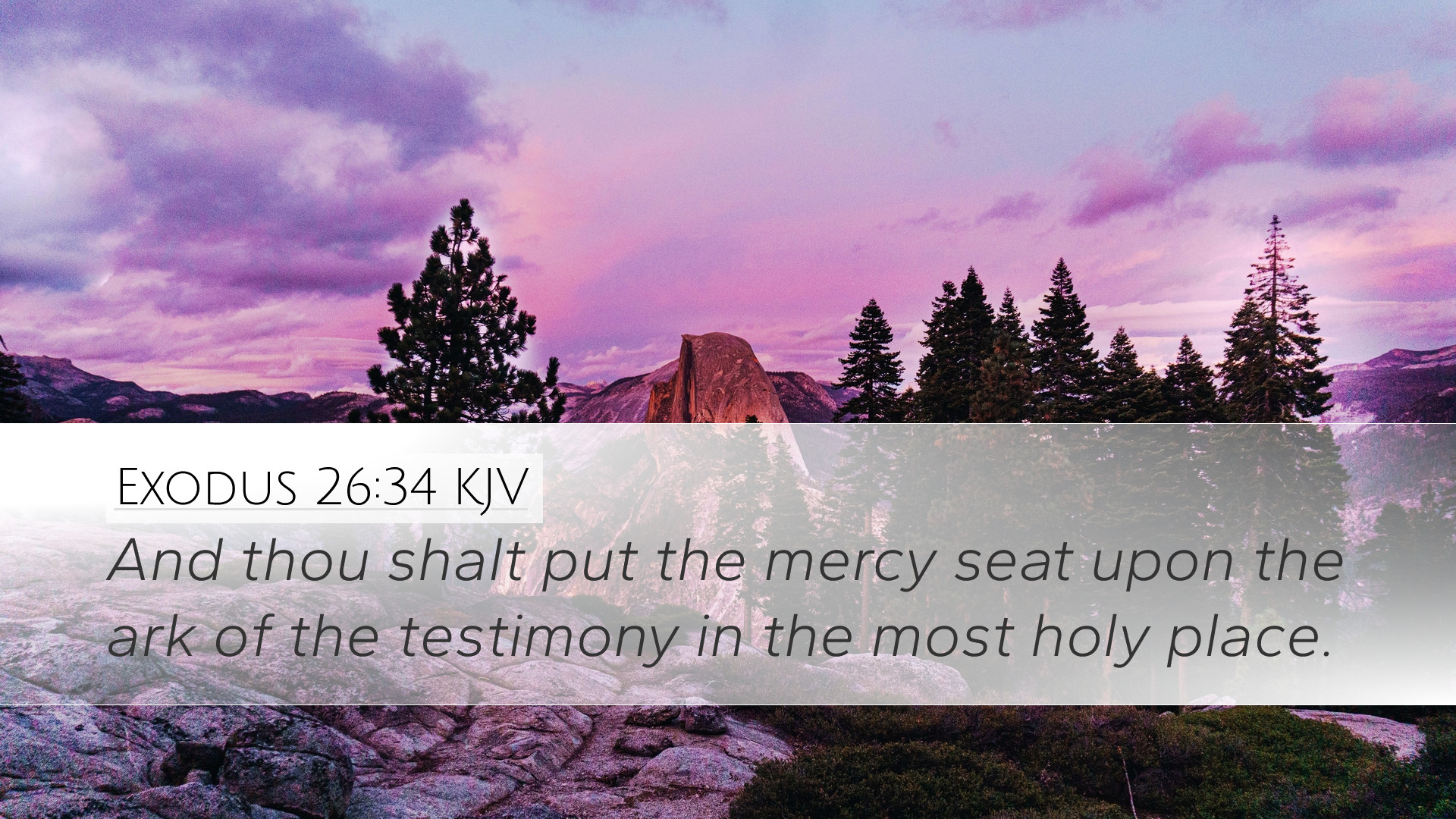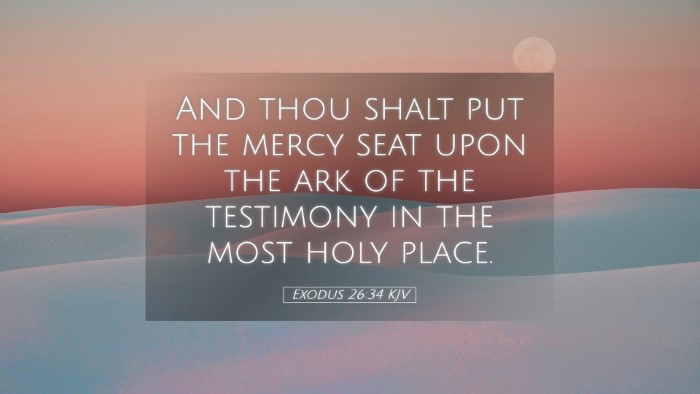Commentary on Exodus 26:34
Verse: Exodus 26:34 - "And there I will meet with you, and I will speak with you from above the mercy seat, from between the two cherubim which are upon the ark of the testimony, of all things which I will give thee in commandment unto the children of Israel."
Overview
This verse serves as a pivotal point within the context of Israel's worship in the Tabernacle. It distinctly underscores God's desire to dwell among His people and to communicate His will to them. The mercy seat, representing the divine presence, becomes the focal point of God's interaction with Israel.
Theological Significance
- God's Presence: The declaration "there I will meet with you" signifies that while God's presence is omnipresent, there is a specific locale where His glory manifests in a unique capacity, the mercy seat on the Ark of the Covenant.
- Divine Communication: The phrase "I will speak with you" speaks to the essential relationship between God and His people, suggesting that communication is not one-sided but involves God revealing His commands and guidance.
Commentary Insights
Matthew Henry
Henry emphasizes the mercy seat as synonymous with God's grace and mercy, contrasting it with the judgment that the law often invokes. The cherubim symbolize the purity and holiness surrounding God's presence, reminding believers of the sacredness of engaging with the divine. The interaction at the mercy seat illustrates the essence of intercession, where God's mercy overcomes the demands of the law.
Albert Barnes
Barnes elaborates on the significance of the Ark of the Covenant, highlighting its role as a testament to God's promises. He notes the importance of the cherubim, which serve as guardians of holiness, providing a visual representation of divine protection and worship. The statement about speaking "of all things” signifies the comprehensive nature of God’s commandment, addressing every aspect of life and conduct.
Adam Clarke
Clarke focuses on the relational aspect between God and His people, noting that God's desire to communicate from the mercy seat exemplifies His intention for a personal relationship with humanity. Clarke identifies the mercy seat as the intersection of divine justice and mercy, emphasizing the critical role of atonement and sacrifice in understanding the full nature of God's dealings with sin.
Implications for Worship
This verse invites pastors and theologians to consider the implications of a mediated relationship with God. It highlights the importance of worship spaces designed to honor God's holiness while also recognizing His willingness to engage with humanity in grace. The imagery of the mercy seat encourages believers to seek a deeper understanding of God’s character, which is both just and merciful.
Application for Believers
- Intimacy with God: Believers are encouraged to draw near to God, knowing that He desires communion with them.
- Listening for God's Voice: The calling to hear from God necessitates patience and attentiveness in prayer and meditation on Scripture.
- Embracing Mercy: Acknowledging the function of the mercy seat inspires believers to transcend guilt and shame, embracing the forgiveness offered through Christ.
Conclusion
Exodus 26:34 is a profound verse that encapsulates the heart of God's relationship with His people. Through the combined insights of Matthew Henry, Albert Barnes, and Adam Clarke, we understand that this message of meeting and communication from the mercy seat fulfills the dynamics of grace, holiness, and divine guidance. It teaches that, while God is holy and just, He is also merciful and desires a profound relationship with us.


